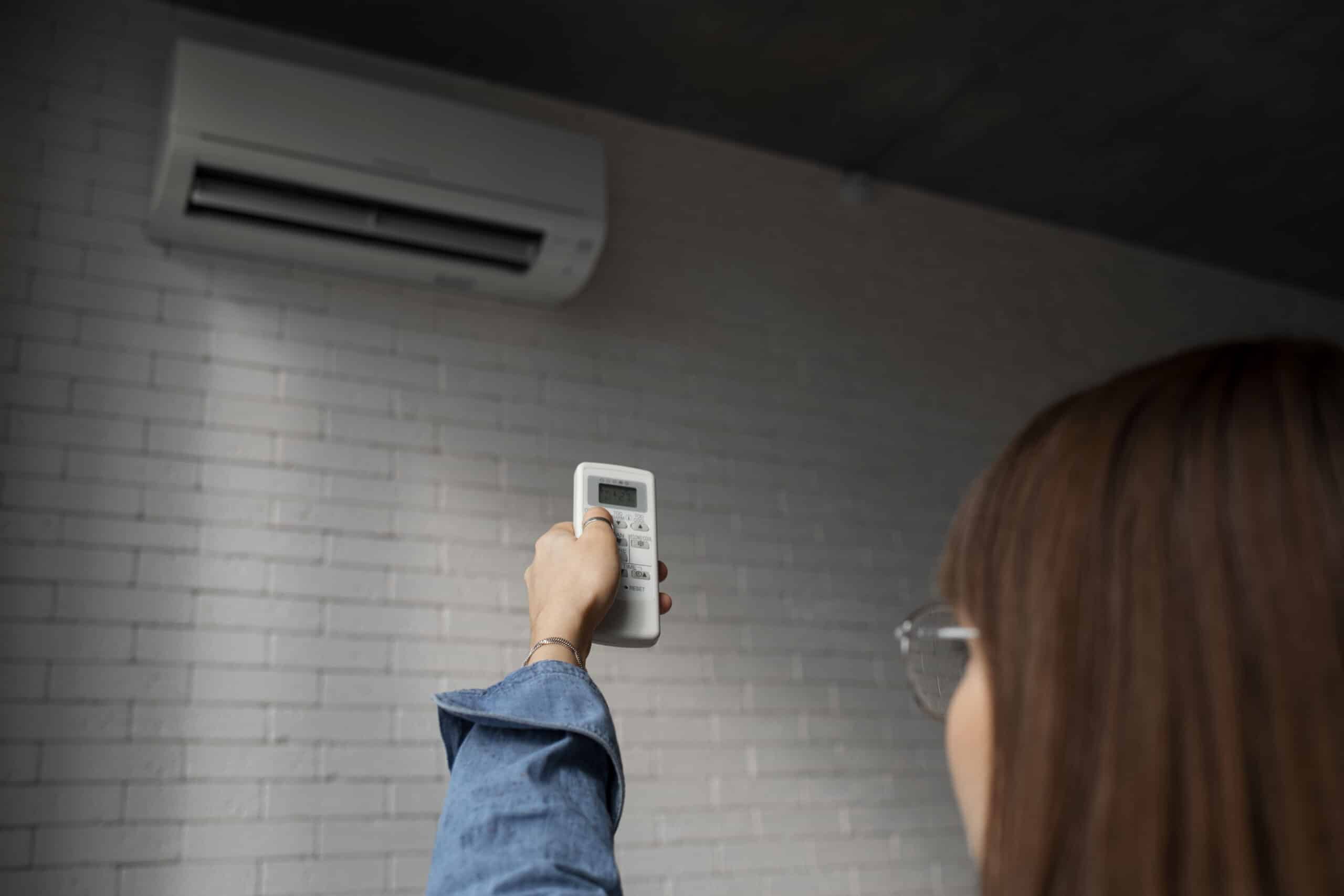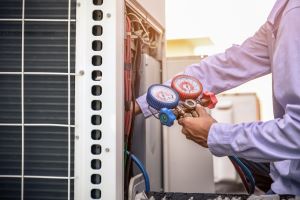Choose DMAKS HVAC for Expert and Efficient HVAC Solutions.
Choose DMAKS HVAC for Expert and Efficient HVAC Solutions.
Blog Article
How to Pick the Right A/c System for Your Requirements
Picking the suitable Cooling and heating system is an essential decision that calls for cautious consideration of numerous factors. The myriad of system types available can complicate this process, leading one to wonder which course ultimately leads to ideal convenience and performance.
Analyze Your Home Size
Examining your home size is an important first step in selecting the proper Heating and cooling system. A HVAC system that is too tiny will struggle to keep comfortable temperatures, leading to increased power intake and use on the unit.
To accurately evaluate your home size, gauge the square video footage of each room, considering elements such as ceiling height and the layout. Furthermore, take into consideration the insulation top quality and the variety of windows, as these elements influence thermal performance. Houses with open flooring plans may require different system configurations contrasted to those with many split areas.
Utilizing the Guidebook J lots estimation technique can offer a much more exact quote of your a/c requires. This technique make up numerous factors, consisting of regional climate, solar gain, and occupancy patterns. By very carefully reviewing these aspects, you can make sure that your chosen a/c system is suitably sized, resulting in improved comfort, energy effectiveness, and longevity of the devices.
Determine Your Budget
Identifying your budget is a critical step in the a/c system selection procedure, as it sets the specifications for your options - DMAKS HVAC. A heating and cooling system is a substantial investment, and comprehending your monetary restrictions will certainly assist narrow down selections that fit within your methods
Begin by assessing not just the first acquisition rate yet also setup costs, which can vary considerably depending upon the complexity of the job. Take into consideration continuous costs such as upkeep, repair services, and power intake. A system may appear inexpensive originally yet can cause greater expenses gradually if it is less reliable.
It is a good idea to designate a backup fund for unforeseen costs that might arise throughout installation or initial system adjustments (DMAKS HVAC). Furthermore, discover financing alternatives or rebates that may be offered, as these can reduce the concern of in advance prices
Inevitably, having a clear spending plan allows you to engage with cooling and heating specialists better, ensuring you get customized recommendations that aligns with your monetary objectives and home demands. By being thorough concerning your budget, you can make informed choices that improve comfort without endangering monetary stability.
Evaluate Energy Efficiency
Energy efficiency plays an important role in the general efficiency and cost-effectiveness of your heating and cooling system. When picking a system, it is crucial to consider its energy effectiveness scores, as these figures straight impact your utility costs and environmental footprint. Seek systems with a high Seasonal Energy Performance Ratio (SEER) for cooling down and a high Annual Fuel Use Effectiveness (AFUE) rating for home heating. Greater rankings show better efficiency, meaning even more comfort for much less power consumption.
Furthermore, think about the important site Power Star certification, which indicates that the system fulfills stringent effectiveness guidelines set by the Epa. Purchasing a Power Star-rated a/c system can lead to considerable cost savings gradually, especially in areas with severe temperature level fluctuations.
One more element to evaluate is the system's size and capability. An extra-large or small system can bring about ineffectiveness and raised power costs. DMAKS HVAC. Correct sizing, typically determined with a Hand-operated J tons calculation, makes sure that the system operates at optimum efficiency


Consider Environment and Atmosphere
When choosing a HVAC system, it is essential to think about the local environment and ecological problems, as these factors considerably influence the system's efficiency and efficiency. Various areas experience differing temperature level extremes, moisture levels, and seasonal changes, all of which effect home heating and cooling down demands.

Moreover, neighborhood environmental variables, such as air high quality and prospective allergens, ought to notify your choice. Equipments outfitted with advanced filtration modern technologies can help alleviate pollutants and give cleaner air. Furthermore, consider the power resources available in your area-- some heating and cooling systems are much more effective when powered by gas or renewable resource resources.
Inevitably, aligning your heating and cooling system choice with your local environment and ecological considerations will cause boosted comfort, boosted effectiveness, and reduced power prices.
Explore System Kind and Features
As homeowners look for to maximize convenience and efficiency, discovering the different types of heating and cooling systems and their special functions becomes important. The key kinds of heating and cooling systems include air conditioning, heatpump, ductless mini-split systems, and heating systems. Each system provides unique advantages customized to various requirements and preferences.
Air conditioning systems provide uniform air conditioning throughout a home, making them perfect for larger rooms. Heatpump offer as both home heating and cooling down options, making use of electricity to transfer warmth, which Related Site can cause reduced energy costs. Ductless mini-split systems are becoming significantly preferred as a result of their adaptability and convenience of setup, see this page permitting property owners to regulate the temperature in private rooms without considerable ductwork.

Final Thought
To conclude, choosing the proper a/c system requires cautious factor to consider of numerous aspects, consisting of home size, budget restraints, power efficiency, local climate, and readily available system types. A comprehensive analysis of these aspects makes certain ideal comfort and cost-effectiveness. By complying with a structured approach, home owners can make enlightened choices that straighten with their certain needs and preferences, ultimately leading to improved interior air high quality and power savings.
Report this page